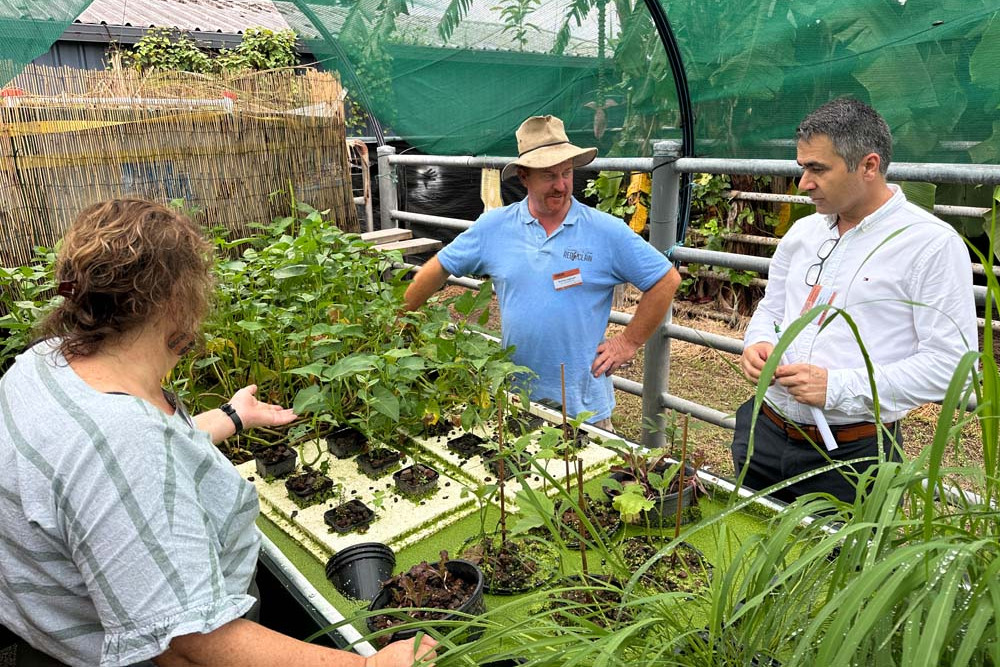On The Land
21 February, 2025
First Nations led ag-tech showcase a success
THE first ever First Nations-led AgTech event kicked off in Cairns last week, bringing farmers, AgTech innovators and industry stakeholders in Queensland’s agricultural sector together for two days of collaboration.

Millenia of Ag-Innovation, hosted by the Tropical North Queensland Drought Resilience Adoption and Innovation Hub (TNQ Drought Hub) in collaboration with Farmers2Founders and Local Indigenous Food Enterprise Services (LIFES) was aimed at exploring the intersection of traditional knowledge and cutting-edge agricultural technologies.
The showcase highlighted groundbreaking First Nations initiatives and demonstrated how the fusion of traditional practices with modern AgTech could drive sustainable advancements across the sector.
TNQ Drought Hub Director Professor David Phelps said the event, which is being funded by AgriFutures Australia, was part of a larger effort to spotlight First Nations innovation and collaboration within the industry, and provided a unique opportunity for people to have conversations that they otherwise wouldn’t get the chance to have.
“It’s about getting people out of the office and into the regions to see these innovative ways the community has been resilient, diversified and able to come back from things like natural disasters,” he said.
The program covered livestock, cropping, and aquaculture and offered valuable opportunities for learning about innovation and sustainable growth for both farmers and AgTech developers.
LIFES president Marc Harbrow said this event is a step forward for many First-Nation businesses.
“LIFES was created to help elevate First Nations businesses that are in the food and agriculture space between Cardwell to Hopevale,” he said.
“There are a number of businesses that do need help and support to connect with greater opportunities, whether that’s business exports, business contacts or new business.
“We’re talking about businesses that are on farmlands and not in metropolitan areas.”


